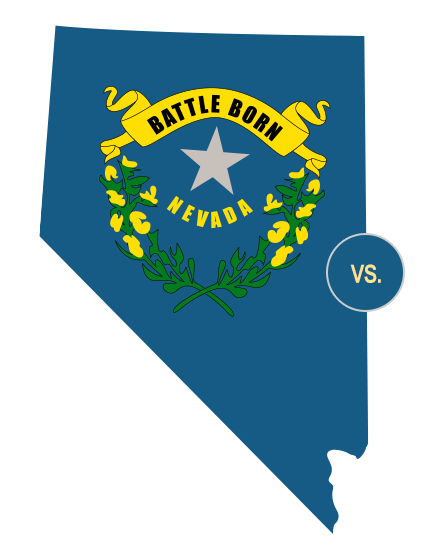Choosing The Right Business Entity For Your Franchise
Entities for Franchises
If you don't want to start a business from the ground up, an established brand and business model might be what you need.
What is Franchising?
A franchising agreement is where one party, the franchisor, allows another party, the franchisee or franchise owner, to use their trademark name and sell their products or services in exchange for a licensing fee.
As of writing, the purchasing fee for a franchise company (franchise fees) ranges from $20,000 to $1M, depending on their license. You’ll need a minimum capital of $50,000 to $60,000 before starting a service-based business. Meanwhile, a facilities-based company needs an initial investment of around $75,000 to $1M.
It's also worth noting that you must pay franchise royalties once you start running your business. Royalty fees range from 4% to 12% of your location's profit.
Franchising vs. Other Business Types
There are plenty of reasons why most people prefer franchise businesses over startups. For instance, starting your own company from the ground up is a risky endeavor.
You must determine what you offer for your target customer and who you'll compete with. There's also the question of whether or not they'll like your products and services. Is it unique enough to catch their attention, or is it just like any other product in the market?
Recent studies have also shown that failure rates for new startups are soaring. Roughly 20% of the new businesses launched within the country can barely survive their first year, while only around 50% of them will last up to five years.
These numbers show how difficult it is for startups to survive in today's highly competitive market. To beat the odds, you must work harder to establish your business. But if you decide to franchise a business, you'll have fewer things to worry about.
You have a tried and tested model you can follow and an established brand to use. These factors increase your chances of success exponentially.
Advantages of A Franchise Business
Aside from having higher success rates, here are a few other advantages to having a franchise business:
- Built-in Brand Awareness: Most of the time, franchise businesses already have regional or national recognition. Their established name adds value to your products and provides a certain level of buyer confidence.
- Easy Access to External Funding: Lenders are more comfortable financing franchise investments since these companies have a proven track record. You'll have a much more difficult time getting a loan for a new startup.
- No Experience Required: Franchisors don't require their franchisees to have prior experience running their own business. They provide them with all the training they need to run their operations efficiently.
Starting A Franchise
Here's how you can start your own franchise business.
Find A Business You Like
There are plenty of franchise businesses you can invest in, from food and drinks to retail stores. They’re divided into several types of franchises: job, product (distribution), business format, investment, and conversion franchises. Visit websites like Franchise Direct to see the different franchising opportunities and agreements available.
Evaluate The Pros And Cons
Once you find a franchise business you like, you must evaluate its pros and cons. For example, is there an existing location within your area? One city can have multiple McDonalds', but it would be best if you could guarantee that your franchise location will have fewer competitors.
We also suggest you evaluate how much the franchising agreement would cost you. Aside from the initial fees we've mentioned, there are other business costs you need to consider, like marketing fees, local taxes, maintenance, and the like.
Draft a Business Plan
While numerous parts of your chosen franchise have been established, you still handle its most important aspects. A business plan allows you to explain why you’d make an excellent manager for the franchise and how you understand your potential customers.
Get A Franchise License Agreement
After you evaluate the opportunities of your chosen franchising, you can start processing your license. Typically, your franchisor should have a contract that includes all the important information about the franchise business.
Before you sign it, make sure you read its condition properly. You need to know the standards your franchisor wants its franchisees to uphold.
Form A Business Entity
Depending on your franchisor, you may have to incorporate your franchise into a legal business entity, like an LLC or a corporation. Even if they don't have any requirements for incorporation, it's still vital for your franchise to have a business entity.
Why Your Franchise Needs An LLC Structure
Incorporating your franchise business into a limited liability company (LLC) provides plenty of tax breaks and other benefits. Here are some examples:
- Separate legal identities for you and your business.
- A strong corporate veil that reduces personal liability.
- Fewer legal requirements.
- Flexible ownership.
- Pass-through tax status.
With these advantages in mind, you'll be able to unleash your franchise business' full potential in no time.
Incorporate Your Franchise Business Today
With more than 30 years of experience in business formation, NCH is one of the leading providers of business formation services in Nevada.
Our team has worked with plenty of franchise businesses over the years. We've provided them expert advice and guidance in finding the right entity and incorporating their business.
With our help, you'll be able to get the advanced business and personal asset protection and tax savings you need. Learn more about how we can help your franchise company today by visiting our website or calling us at 1-800-508-1729 for a FREE consultation.
Free Consultation
Speak With a Business Expert
Related Articles:
Free E-Book
 24 Hour LLC Guarantee
24 Hour LLC Guarantee



